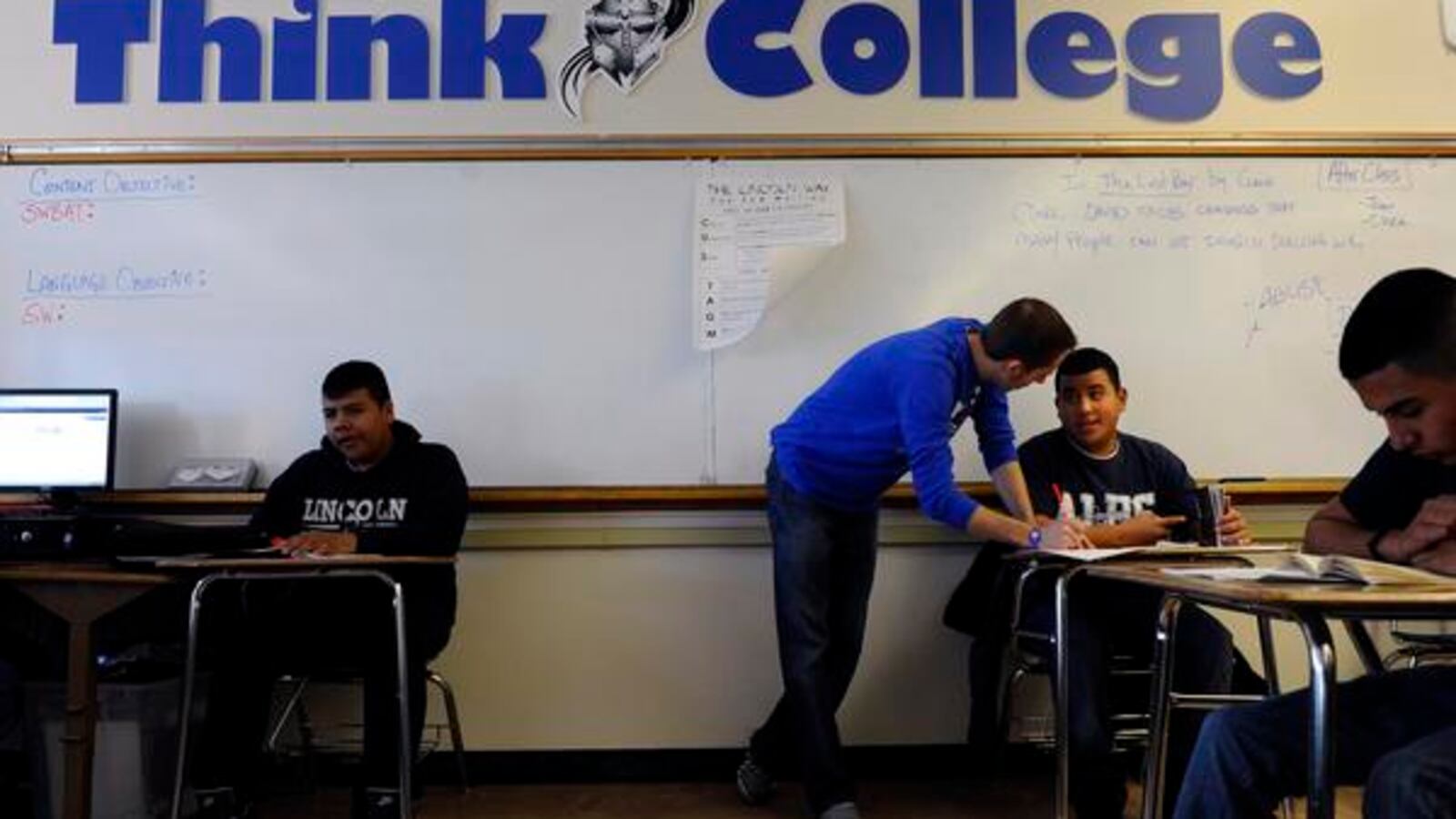Fewer teachers in Colorado’s six largest school districts are at risk of losing their job protections after back-to-back ineffective ratings, according to numbers provided by the districts.
Under a controversial state law known as Senate Bill 191, teachers who earn two consecutive ineffective ratings can lose their non-probationary status, often referred to as tenure.
Twenty-one teachers in Denver Public Schools, the state’s largest district, received their second consecutive less-than-effective rating in 2016-17. That’s down from 47 in 2015-16, which was the first year teachers could be stripped of their job protections under the law.
In Douglas County, where 24 teachers were at risk of losing non-probationary status in 2015-16 just one teacher this year is in that position, according to a district spokesperson.
In Aurora, five teachers are set to lose their status, compared to 12 the previous year, a spokesperson said. In the Cherry Creek district, where one teacher faced losing status in 2015-16, a spokesperson said no teachers will lose it this year.
Two teachers in the Adams 12 Five Star district are set to lose non-probationary status, a spokesperson said. Last year, he said, no Adams 12 teachers did.
No Jeffco Public Schools teachers lost non-probationary status last year, either. The state’s second-largest district does not yet have numbers for the 2016-17 school year because its teacher evaluations aren’t finalized until the fall. The law, however, says teacher evaluations must be completed two weeks before the end of the school year.
Of the 21 Denver Public Schools teachers who earned their second consecutive less-than-effective rating in 2016-17, three have already have resigned, district officials said.
The other 18 are currently slated to return in the fall with probationary status, which means they’ll work under one-year contracts. Probationary teachers have less job security because a school district can decline to renew their contracts for any reason allowed by law.
The contracts of nine DPS teachers who lost non-probationary status in 2015-16 and returned for the 2016-17 school year as probationary teachers were set to be non-renewed at the end of the year, said DPS spokesman Will Jones. However, three of the nine teachers resigned, leaving just six whose contracts were formally not renewed, he said.
By contrast, non-probationary teachers can only be fired if a district can prove one of several grounds, such as that a teacher was insubordinate or immoral. Non-probationary teachers can also appeal their ratings and the loss of their status.
Last year, nine DPS teachers appealed one or both of those, Jones said. Five were successful and did not end up losing their non-probationary status, he said.
Eight teachers are pursuing appeals this year, Jones said. Five of them are still in the process of appealing their ratings; if successful, they won’t have to appeal the loss of their status, he said.
Of the 18 teachers who will return in the fall with probationary status, 12 are white, five are Hispanic and one is African-American, Jones said. Overall, 73 percent of DPS teachers in 2016-17 were white, 18 percent were Hispanic and 4 percent were African-American, according to data provided to a DPS task force on African-American equity.
Six of the teachers have between 16 and 24 years of experience with DPS, Jones said. The other 12 teachers have 15 years of experience or less.
Pam Shamburg, executive director of the Denver Classroom Teachers Association, said the union is happy that fewer teachers are set to lose non-probationary status this year.
She sees the decrease as a sign that DPS, which uses its own teacher evaluation system rather than the state-developed model, is being more thoughtful about being fair to teachers.
“The biggest thing is to help the district work to a point where their evaluation system is realistic and authentic and not punitive,” she said. “I think they have some appetite to get there.”
Sarah Almy, executive director of talent management for DPS, said it’s not possible to draw any conclusions about why the number of teachers is down from just two years’ worth of data.
But she said the teacher evaluation system is not meant to be punitive.
“We really do want this to be a system … to support teachers in developing and growing their practice,” Almy said. “So we are hopeful that is what’s happening.”
It’s also important that teachers see the system as fair, she said. In the 2015-16 school year, Almy said DPS began using a team of highly trained peer observers to work with schools to help ensure the definition of effectiveness was consistent.

